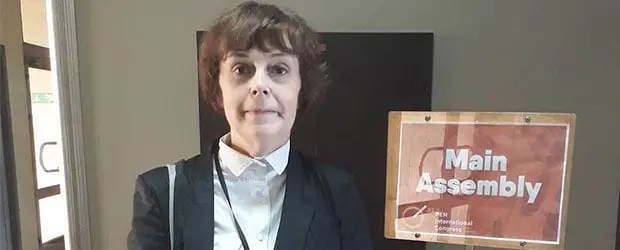By Sam Zelitch
On November 3, The Daily Beast reported that Jenna Abrams, a popular Twitter user with over 70,000 followers, was not in fact a flesh-and-blood person, but a collaborative project of the St. Petersburg-based Internet Research Agency (IRA), a private company that specializes in spreading pro-Russian propaganda online. The list of publications who quoted the phony account is lengthy, but it includes such names as U.S. News and World Report and CNN, both of which, as of this writing, still have Abrams’s quotes posted online as if they were from a real person.
While Twitter has banned her from the platform, “Jenna” has resurfaced with a gaslighting blog post titled “Our Democracy Has Been Hacked” that rebuffs The Daily Beast‘s report. “Calling me a Russian agent is insanely inaccurate and based on no evidence,” it reads. “I may be American, Canadian, Ecuadorian, or maybe I am artificial intelligence, and you live in Matrix, who knows.”
Who knows, indeed.
The reports can be dizzying, so let’s stick to the facts. Jenna Abrams isn’t American, Canadian, Ecuadorian. Jenna Abrams isn’t even Russian. Jenna Abrams doesn’t exist. At this point, the anonymous world of internet trolling should remind you less of The Matrix and more of The Sting—in the case of Jenna Abrams, a fairly simple hoax orchestrated by professional hucksters. “These trolls, most of them are former students who studied literature or philosophy or history,” says Andrey Zakharov, a Russian journalist who has studied trolls for years. “Their aim was to raise tensions in the United States.”
That’s it, says Zakharov. He says employees of IRA aren’t hired to get anyone elected. Instead, their job is to cause controversy. “Only a small portion of them are conservative,” says Zakharov. And in fact, not all of their accounts are conservative, either. Many of the most popular Facebook groups created by the IRA are groups that address racial division in the United States. Zakharov has tracked several fake accounts created to look like outspoken black activists online, some of whom organized successful protests in the United States.
And for a young kid struggling to make ends meet in Russia’s second biggest city, the salary isn’t bad. Zakharov says these trolls can make about the same salary as a journalist armed with legitimate facts and at considerable risk of being killed or imprisoned. In the Russian workforce, there’s as much money in chaos as there is in news.
The good news is these trolls aren’t infallible. In the case of @Jenn_Abrams, the supposedly American account was set up with a Russian phone number. “They tried to have security using VPN and virtual streams, but they still make such mistakes,” says Zakharov. “They always make such mistakes. Most of them will use the same Google ID, or they use the same IP address.”
Zakharov also highlights an important distinction: It isn’t the Russian government that’s poised to control our elections and our minds, but individual entities. “When your friends write that the Russian government makes Facebook groups, that’s incorrect. It’s not the government. It’s close to the Kremlin, but it’s still a private company.”
Zakharov suggests that American media needs to get smarter about not falling for hoaxes like these, which are set up to go viral by a culture that understands propaganda. But it’s an uphill battle, and news consumers must remain skeptical and take an active role in fact-checking. (For more tips on becoming an empowered news consumer, check out PEN America’s latest report Faking News: Fraudulent News and the Fight for Truth.)











